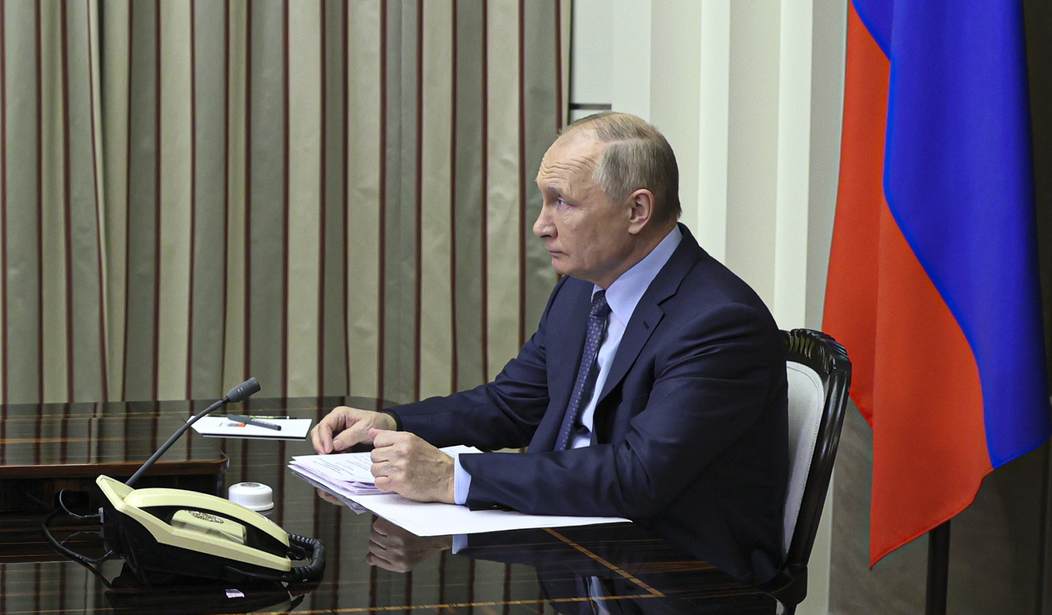Much has been written about American decline. Often one’s rivals look ten feet tall and it’s easy to forget that both Russia and China have problems of their own. In an effort to achieve a zero spread of Covid, Beijing is imprisoning whole cities.
As harrowing stories continue to emerge from within the locked-down city of Xi’an, a wave of disbelief has washed over the Chinese public: why are such tragedies still unfolding two years into the pandemic, in a major metropolis of 13 million people?
Xi’an was placed under strict lockdown orders on December 23 in a drastic bid to contain the spread of a fast-growing Covid cluster. But in the days and weeks since, a steady stream of complaints about food shortages, as well as heartbreaking scenes of critical patients — including heavily pregnant women — being denied medical care have shocked the nation.
Some of China’s woes are caused by the failure of Beijing’s own systems to meet its ambitious goals. First, it mandated the installation of a contact-tracing app as a requirement for physical movement, even in Hong Kong. Then the app collapsed. “The Chinese city of Xian suspended its top official in charge of big data after the system powering the local health code app, a critical tool in China’s zero-Covid strategy, crashed for a second time.”
Life has fallen into further disarray in the Chinese city Xi’an after a government Covid-19 tracing app crashed … The application is used to track individuals’ infection status and proof of vaccination, which are both essential requirements when entering hospitals in the region … a local women’s organization is investigating reports a pregnant woman lost her baby after being denied entry to two hospitals … unable to prove her negative result via the malfunctioning health code app.
Not everything is rosy in China. Elsewhere in the Eurasian continent, Russia’s threatened invasion of Ukraine was suddenly disrupted by an uprising in the former Soviet republic of Kazakhstan caused by spiking gas prices, oligarchical corruption, and economic collapse. The surprise rebellion forced the Kremlin to send in thousands of troops to restore order, likely a difficult task given allegations that the plotters come from inside the security establishment itself. “Kazakhstan’s former intelligence chief has been arrested on suspicion of treason following nationwide anti-government protests.”
On top of his role as head of the intelligence agency, which grew out of the Soviet state security force the KGB, Mr Massimov was a close ally of President Nazarbayev, twice serving as his prime minister.
His arrest has sparked rumours of a power struggle in the Kazakh government, the BBC’s Carrie Davies in Moscow reports.
The U.S. government, no less than the Kremlin, seems to have been caught off-guard by the sudden flare-up of internal division in the Kremlin’s backyard. Radio Free Europe writes:
Is A battle for power raging within Kazakhstan’s government? … Mass protests in recent days in dozens of cities over poor socioeconomic conditions in a country rich in oil and other resources is being overshadowed by a struggle for power between President Qasym-Zhomart Toqaev’s administration and loyalists of the country’s first president, Nursultan Nazarbaev. The January 8 announcement of the arrest on suspicion of treason of the former head of the Committee for National Security (KNB), Karim Masimov, was the clearest indication yet that while security forces continue their “anti-terrorist” operations around the country, another battle is being waged between Kazakhstan’s most powerful officials.
While neither of these problems represents an existential threat to Russia or China, it underscores how even the great powers are hostage to fortune. “I think it will deter [Russia’s] ability to wage a major conflict in Ukraine,” says House Republican Mark Green of Tennessee. Or will it? There is the contrary opinion:
The question is whether the unrest in Kazakhstan has changed the calculations of Russian President Vladimir Putin as he weighs his options in Ukraine. Some say Putin may not want to engage in two conflicts at the same time, while others say Russia has the military capacity to do both and he will decide separately on whether to attack Ukraine. The instability in Kazakhstan may even add new urgency to Putin’s desire to shore up Russia’s power in the region.
The fortunes of war are defined as encompassing undertakings in which the outcome is not a certainty. Try as we might, we or Putin cannot banish the contingent from events. Some historians even believe the Cuban Missile Crisis was resolved through pure, blind luck. To be fair, it may also have been precipitated by a run of equally bad miscalculation. Things can go both ways. The only consolation for the players is that over the long run, the proportion of pluses to minuses will reflect their true abilities. Only with the incompetent is all luck bad luck.
Books: The Real Anthony Fauci: Bill Gates, Big Pharma, and the Global War on Democracy and Public Health by Robert F. Kennedy Jr. The Real Anthony Fauci details how Fauci, Gates, and their cohorts use their control of media outlets, scientific journals, key government and quasi-governmental agencies, global intelligence agencies, and influential scientists and physicians to flood the public with fearful propaganda about COVID-19 virulence and pathogenesis, and to muzzle debate and ruthlessly censor dissent.










Join the conversation as a VIP Member